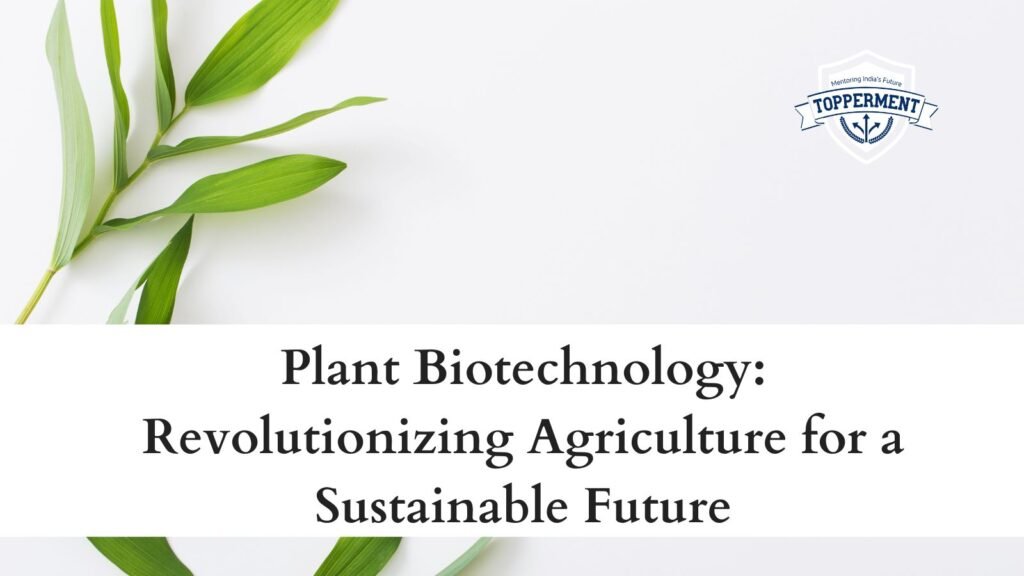Plant biotechnology refers to the application of scientific techniques and tools to manipulate plants for various purposes, such as improving crop yield, developing disease-resistant varieties, and enhancing nutritional content. It harnesses the power of genetic engineering, tissue culture, and other methods to address agricultural challenges and meet the increasing demand for food in a sustainable manner
Understanding Plant Biotechnology:
Genetic Engineering:
Genetic engineering involves modifying the genetic makeup of plants by introducing desirable traits from other organisms. This technique enables scientists to enhance crop productivity, improve resistance to pests and diseases, and increase tolerance to harsh environmental conditions.
Tissue Culture:
Tissue culture involves growing plant cells or tissues in a laboratory environment. It allows researchers to propagate plants rapidly and produce disease-free, uniform seedlings. This technique is particularly useful for the mass production of high-quality plants with desirable traits.
Benefits of Plant Biotechnology:
Improved Crop Yield:
Through plant biotechnology, scientists can enhance crop yield by introducing traits that increase resistance to pests, diseases, and weeds. This leads to reduced crop losses and higher agricultural productivity, ultimately ensuring food security for a growing global population.
Enhanced Nutritional Content:
Plant biotechnology has the potential to address malnutrition by enriching crops with essential vitamins, minerals, and other nutrients. This can help combat deficiencies and improve public health, especially in regions where access to diverse diets is limited.
Environmental Sustainability:
Plant biotechnology offers environmentally friendly solutions by reducing the use of chemical pesticides and herbicides. Genetically modified crops can possess built-in pest resistance, reducing the need for extensive spraying. Moreover, biotechnology can contribute to more efficient use of water and nutrients, minimizing environmental impact
Disease Resistance:
Plant biotechnology plays a vital role in developing disease-resistant crop varieties. By introducing genes that confer resistance to specific pathogens, scientists can minimize the use of fungicides and reduce crop losses due to diseases.
Plant biotechnology holds immense promise for addressing global food security, improving crop productivity, and promoting sustainable agriculture. By harnessing the power of genetic engineering and tissue culture techniques, scientists can develop crops that are more resilient, nutritious, and environmentally friendly
Also Read
- Plateau Formation Process And Its Significance | UPSC Geography
- Policy On Synthetic Biology | UPSC Science and Technology
Follow Us For More Content On:
https://www.instagram.com/topperment/


